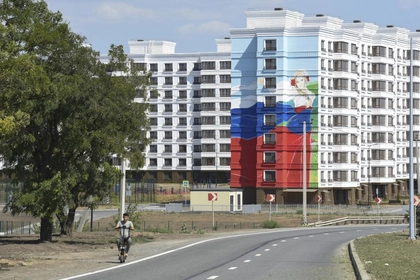At the end of April, rumors began circulating in Ukraine that the government submitted an application to the Council of Europe for the partial suspension of some clauses of the European Convention on Human Rights.
Apart from Telegram channels, some news outlets also reported on the update, claiming that certain rights – including the right to property and freedom of movement – were to be restricted based on the document submitted.
JOIN US ON TELEGRAM
Follow our coverage of the war on the @Kyivpost_official.
However, as the minister of justice and some legal experts later explained, this was simply a misinterpretation of the formality, which actually informed the Council of Europe – of which Ukraine has been a member since 1995 – of the easing of certain restrictions.
The alleged suspension
Most reports pointed towards the Council of Europe’s updates, which mentioned the “partial withdrawal of derogation” concerning Articles 4.3, 9, 13, 14 and 16 of the Convention, where the aforementioned document could be found.
Here’s an excerpt from the document:
“Pursuant to Article 3 of the Presidential Decree, in connection with the introduction of martial law in Ukraine, constitutional rights and freedoms of a person and citizen provided for in Articles 30-34, 38, 39, 41-44, 53 of the Constitution of Ukraine may be temporary [sic] restricted for the period of martial law.”
“Temporary restrictions on the rights of persons to the extent necessary to ensure the possibility of implementing measures of the legal regime of martial law provided for in part one of Article 8 of the Law of Ukraine "On the Legal Regime of Martial Law" (hereinafter – the Law) may be introduced as well.”

IMF Approves $1.1 Billion Loan Disbursement to Ukraine Before Trump Inauguration
In it, it mentioned a list of restrictions in martial law, including:
- The inviolability of housing
- The confidentiality of correspondence, telephone conversations and other correspondence
- Non-interference in personal and family life
- Freedom of movement and free choice of place of residence
- The right to freedom of thought and speech
- The free expression of views and beliefs, as well as rights regarding the collection, storage and dissemination of information
- The right to hold meetings, rallies and strikes
- The right to own, use and dispose of one's property
However, the reports omitted one important detail – the move was a “partial withdrawal of derogation,” where derogation meant an exemption from or relaxation of a rule or law – in Ukraine’s case, the restrictions introduced at the beginning of the full-scale invasion.
“Derogation under the previously defined Articles 3, 8(3), 9, 13, 20, 22, 24, 26, 27 of the Covenant and Articles 4(3), 9, 13, 14, 16 of the Convention is withdrawn,” read the end of the document.
In other words, Ukraine was easing some of the restrictions introduced earlier.
Explanations from government officials and legal experts
Ukraine’s Minister of Justice Denis Malyuska later clarified the move on Facebook.
“We actually sent a notification about the possibility of applying restrictions on certain rights almost immediately after the introduction of martial law in 2022 – this is part of our international obligations (such notifications have been sent since 2015).
“And in April 2024, we once again clarified the list of existing restrictions and REDUCED it,” said Malyuska, adding that it is also Ukraine’s international obligation to periodically review the notices and potential restrictions.
Inna Liniova, international operations advisor of the Ukrainian Bar Association, told Kyiv Post that Ukraine has an obligation to inform the Council of Europe of its derogation “during times of emergency,” but the recent update simply informed the council that certain restrictions no longer apply.
“In March, Ukraine formally notified the Council of Europe that its derogation – originally submitted in February 2022 – no longer encompasses obligations under Articles 4.3, 9, 13, 14 and 16 of the European Convention.
“In essence, Ukraine let the Council of Europe know that it's fully committed to upholding the rights outlined in these articles,” Liniova said.
According to the European Convention on Human Rights, the articles outlined in the update encompassed the prohibition of slavery and forced labor, the freedom of thought, conscience and religion, the right to an effective remedy, the prohibition of discrimination and the restrictions on political activity of aliens respectively.
You can also highlight the text and press Ctrl + Enter






